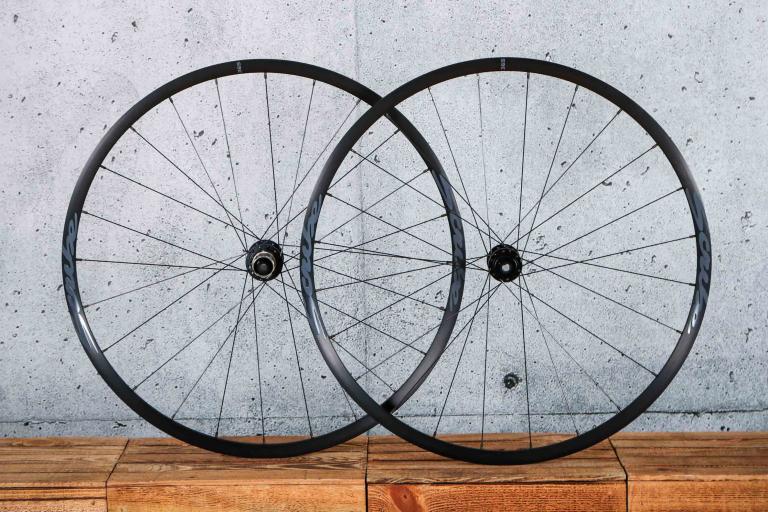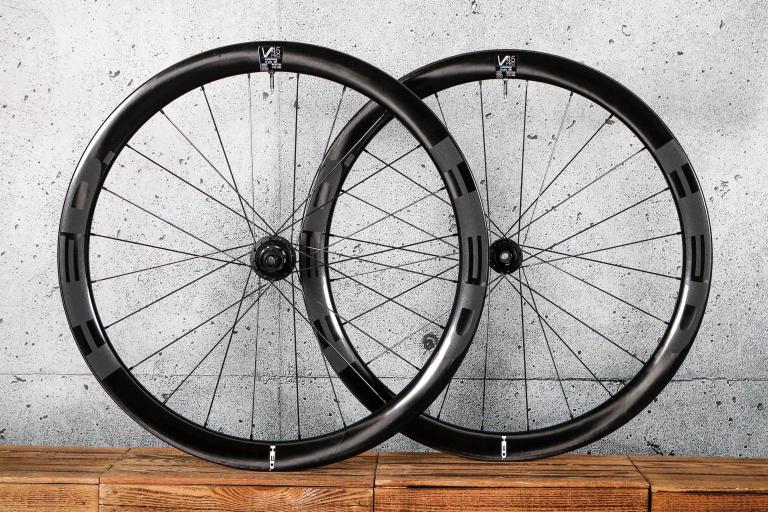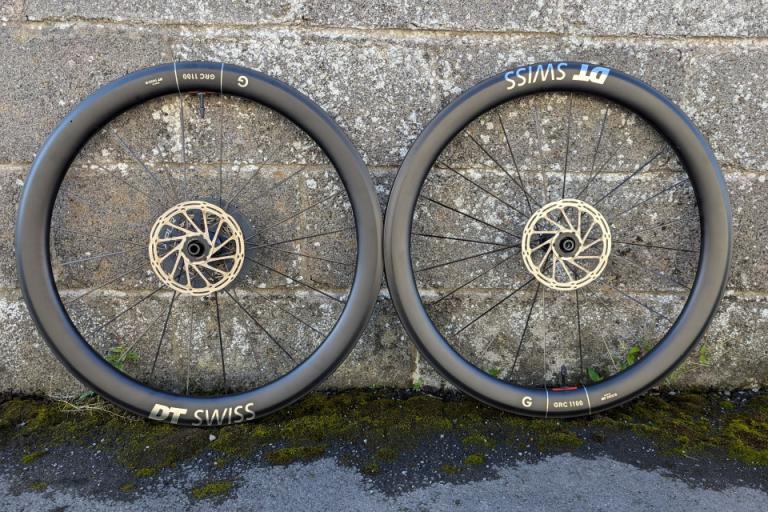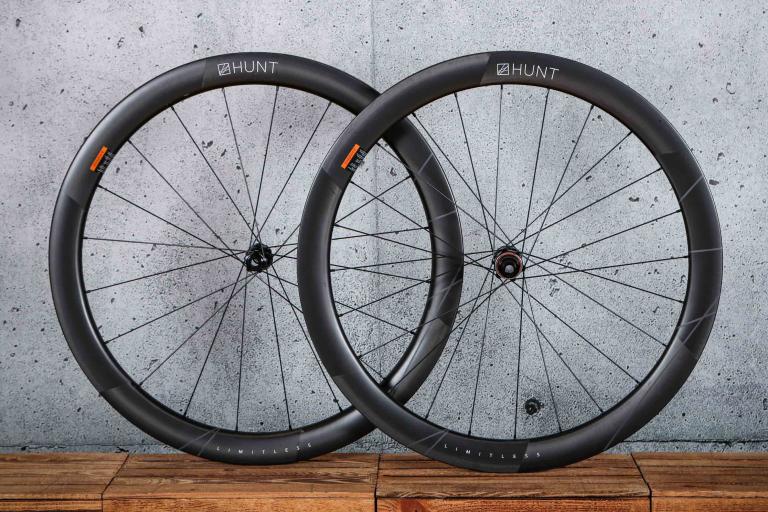- News
- Reviews
- Bikes
- Accessories
- Accessories - misc
- Computer mounts
- Bags
- Bar ends
- Bike bags & cases
- Bottle cages
- Bottles
- Cameras
- Car racks
- Child seats
- Computers
- Glasses
- GPS units
- Helmets
- Lights - front
- Lights - rear
- Lights - sets
- Locks
- Mirrors
- Mudguards
- Racks
- Pumps & CO2 inflators
- Puncture kits
- Reflectives
- Smart watches
- Stands and racks
- Trailers
- Clothing
- Components
- Bar tape & grips
- Bottom brackets
- Brake & gear cables
- Brake & STI levers
- Brake pads & spares
- Brakes
- Cassettes & freewheels
- Chains
- Chainsets & chainrings
- Derailleurs - front
- Derailleurs - rear
- Forks
- Gear levers & shifters
- Groupsets
- Handlebars & extensions
- Headsets
- Hubs
- Inner tubes
- Pedals
- Quick releases & skewers
- Saddles
- Seatposts
- Stems
- Wheels
- Tyres
- Health, fitness and nutrition
- Tools and workshop
- Miscellaneous
- Cross country mountain bikes
- Tubeless valves
- Buyers Guides
- Features
- Forum
- Recommends
- Podcast
review
£899.99
VERDICT:
Stiff, durable wheels that provide a good aero performance for the money
Weight:
2,092g
Contact:
www.evanscycles.com
At road.cc every product is thoroughly tested for as long as it takes to get a proper insight into how well it works. Our reviewers are experienced cyclists that we trust to be objective. While we strive to ensure that opinions expressed are backed up by facts, reviews are by their nature an informed opinion, not a definitive verdict. We don't intentionally try to break anything (except locks) but we do try to look for weak points in any design. The overall score is not just an average of the other scores: it reflects both a product's function and value – with value determined by how a product compares with items of similar spec, quality, and price.
What the road.cc scores meanGood scores are more common than bad, because fortunately good products are more common than bad.
- Exceptional
- Excellent
- Very Good
- Good
- Quite good
- Average
- Not so good
- Poor
- Bad
- Appalling
If you've not heard of Cole before, it's a US brand that's been around since 2004. Evans Cycles have just taken on the distribution over here so you're likely to see plenty of these wheels around in the future.
The AC58 Lite is a new 'semi carbon' clincher; semi carbon in the sense that it's part carbon and part aluminium. The 58 refers to the rim depth in millimetres, which is the same depth as you get with Zipp 404s, incidentally. The width is 20mm at the top of the brake track.
As you'd expect, it's the outer section of the rim that's aluminium, including the 10mm-wide brake track, so you get a good braking performance here with standard pads rather than the slightly unpredictable routine of some carbon surfaces.
The carbon section is closer to a U-shape than a V-shape with a fairly blunt inner edge. The profile actually dips inwards after leaving the braking surface before bulging out slightly to 18mm. This isn't nearly as wide as Zipp's Firecrest profile, for example, which is 26.53mm across at its widest point.
You get 16 spokes in the front wheel and 20 in the rear, all laced single-cross except on the driveside at the back where they're two-cross. The spokes are double butted and aero bladed (2.0, 2.5, 2.0mm) to create less drag. More on them in a mo because they're unusual.
The hubs have cold forged alloy bodies and they're built to Cole's DSA design which is a distinctive feature used across most of the range. DSA stands for Dynamic Spoke Alignment and it's designed to produce a stiff, highly tensioned wheel that's both strong and durable.
Okay, so how does it work? Rather than using J-bend spokes (the traditional ones with a bend just before the spoke head), Cole use straight-pull spokes that are threaded at either end. First, each spoke threads into a little alloy cylinder that's held in the hub flange, then the other end threads into a standard nipple at the rim hole. That cylinder (gold coloured; check out the pic) is free to rotate so the spoke can align itself into the right position.
What's the point in reinventing the wheel? Cole list several benefits. They reckon this design allows them to increase the tension, and they say that the tension will last longer than with J-bend spokes because there's no elbow to alter shape over time. According to Cole's theory, this leads to stiffer wheels that accelerate faster and track better.
Cole also say that the DSA design distributes the load, via the cylinder, to a larger area of the hub flange than usual. By using this cylinder, they don't need to reinforce the hub in the way that some manufacturers do if they use straight pull spokes with a formed head (rather than a threaded end). Plus, there's no elbow to stress and break, as there is on a J-bend spoke.
Finally, Cole say the fact that the cylinder can rotate to align perfectly with the rim hole during assembly improves the strength, increases durability and assures long-term tension.
Just to clear up a few more background details, the wheels run on smooth sealed bearings and the freehub (Campag and Shimano/SRAM are both available) is hard-anodized alloy with a three-pawl leaf spring engagement system. As for the weights, the front wheel is 894g plus 44g for the quick-release skewer, and the rear is 1,106g plus 48g for the skewer. That's a grand total of 2,092g. They come in a padded wheelbag and you get valve extenders included.
If you need to replace a spoke, by the way, you can get a complete set for either the front or the rear wheel (inclucing the alloy DSA threaded barrels) at £29.99. Evans say they will probably split those packs too so you'll be able to buy individual spokes for about £1.50.
Right, on to the ride... Out of the box the spoke tension was high and remarkably even throughout, and the rims were completely round and true. I've put a whole load of miles into these over almost three months now and the shape is still spot-on, so I'm saying the build quality is very good. Either that or I've been lucky because I haven't needed to reach for the spoke key once.
As promised, these wheels are impressively stiff. Stand up on the pedals and chuck the bike from side to side and there's very little movement in the rims. You can get them to flex a bit if you really set your mind to it but that's true of any wheels; under normal circumstances, even if you're pushing a big gear up a steep slope, they're solid.
That's true on high-speed descents too. Turn the front wheel into a sharp turn and it tracks precisely, never taking you offline or causing any concern at all. The alloy brake tracks add to the downhill speed too. By that I mean you don't need to feather the brakes in the same way that you do with some carbon brake tracks because you know that if some hazard does appear around the next corner, you'll have more braking power to cope. With a lot of full-carbon wheels braking is still a little suspect, so you find yourself slowing sooner as a precautionary measure rather than just when you actually need to. I found myself attacking the corners with these wheels fitted.
You couldn't call these wheels lightweight. They're actually a very similar weight to the Gipiemme Carbon H5.5 Speeds that we reviewed recently, and they cost the same too. That means they don't have the zippy acceleration or nippy climbing skills of lightweight road wheels although they pick up speed okay for something with this depth of rim thanks to that stiffness.
The AC58s are at their best on flat or gently undulating roads. Anywhere that you can ride fast, these wheels will help you sustain your speed. They really zip along in those circumstance, cutting through the air efficiently to deliver quick times. They're not the fastest wheels you can buy but they provide a good aero performance for the money and the fact that they're stiff and durable adds to their worth.
Verdict
Stiff, durable wheels that provide a good aero performance for the money
road.cc test report
Make and model: Cole AC58 Lite wheelset
Size tested: n/a
Tell us what the product is for, and who it's aimed at. What do the manufacturers say about it? How does that compare to your own feelings about it?
Cole say, "The Cole AC50 Lite has a deep, 50mm rim profile, with a carbon-aluminium matrix rim. Super aerodynamic in its carbon rim profile, and yet an incredibly strong alu rim braking surface."
It's listed as a road race wheel but you could equally well use if for time trialling.
Rate the product for quality of construction:
8/10
Good, well-finished, durable looks.
Rate the product for performance:
7/10
It's a sound wheel. It's not going to challenge top-end deep-section wheels but it provides a good performance for the money.
Rate the product for durability:
8/10
It's going great guns so far
Rate the product for weight, if applicable:
6/10
Depends how you look at it. They're not lightweight, but they're designed for aerodynamics rather than to shave off the grams.
Rate the product for value:
7/10
Tell us how the product performed overall when used for its designed purpose
There's no doubt they cut through the air well. They're just not especially lightweight when things get lumpy so I'd be using them on flatter rides
Tell us what you particularly liked about the product
The alloy braking surface provides powerful, progressive braking. The
Tell us what you particularly disliked about the product
Nothing especially - although would prefer them to be a bit lighter.
Did you enjoy using the product? Yes, they were reliable and put in a sound performance
Would you consider buying the product? I'd use them for flatter TTs, personally
Would you recommend the product to a friend? See above
About the tester
Age: 40 Height: 190cm Weight: 74kg
I usually ride: My best bike is:
I've been riding for: Over 20 years I ride: Most days I would class myself as: Expert
I regularly do the following types of riding: time trialling, commuting, sportives, general fitness riding,
Mat has been in cycling media since 1996, on titles including BikeRadar, Total Bike, Total Mountain Bike, What Mountain Bike and Mountain Biking UK, and he has been editor of 220 Triathlon and Cycling Plus. Mat has been road.cc technical editor for over a decade, testing bikes, fettling the latest kit, and trying out the most up-to-the-minute clothing. He has won his category in Ironman UK 70.3 and finished on the podium in both marathons he has run. Mat is a Cambridge graduate who did a post-grad in magazine journalism, and he is a winner of the Cycling Media Award for Specialist Online Writer. Now over 50, he's riding road and gravel bikes most days for fun and fitness rather than training for competitions.
Latest Comments
- 🐸 3 hours 30 min ago
No it can't. With lower gears to achieve the same speed you should change more gears and make more pedal strokes. It's just not comfortable. On...
- OldRidgeback 5 hours 41 min ago
I cycle most days and have never contributed to the economy of Maidenhead either. I can't say I've ever actually been there and I live in London. I...
- David9694 6 hours 10 min ago
Police, firefighters and paramedics at Staffordshire smash as 4x4 left in ditch...
- David9694 6 hours 13 min ago
Jolly Farmers pub in Forncett Saint Mary closed after crash...
- dodgy 7 hours 44 min ago
Hard to reconcile the asking price of this, with this https://road.cc/content/tech-news/quintana-roo-unveils-new-all-speed-aer...
- Secret_squirrel 7 hours 48 min ago
I've used Armourtex in north london if you're willing to Powdercoat. Great job. https://www.facebook.com/armourtex
- bluezurich 8 hours 18 min ago
Cycling.Today has you covered for free. Tiz does as well but the moderation over there is a bit facist. Well, a queen mod rules it so it's a...
- chrisonabike 8 hours 52 min ago
Well, on one of my uprights I have a mirror mounted but it is really too small / fitting is not secure enough. I find I just don't use it. On...
- Hirsute 10 hours 33 min ago
This highways roadwork protection vehicle should have been wearing hi viz https://www.bbc.co.uk/news/articles/clyer0ny3x7o
- matthewn5 12 hours 22 min ago
The ugliness is the dealbreaker for me.










Add new comment
6 comments
i want them!!!
I've put 5000kms+ on my Cole Rollen Elites over french country backroads. Although it's an entry-level model, they've remained as true as the day I bought them. They are lightweight and also look sharp (white dtswiss spokes).
is the aero performance any better than the lighter, and cheaper cosmic carbones?
Not slagging the review by any means, but would be interested to see some sort of formal comparison at some stage for speed vs regular lightweight wheels.
The only reason I ask that is due to trying a set of weighty semi-aero prolite wheels at around 2kg, vs a set of regular easton orion 2's at around 1500g, the eastons were zingier and faster over a flat course. Admittedly an unscientific test, but the eastons were substantially cheaper than the aero wheels!
£900 for a pair of wheels just shy of 2kg! Not surprised their weight isn't mentioned in the review. I expect the vast majority of buyers are beginners of sportive-types who believe they need 'aero' wheels but simply won't be riding fast enough to gain any real benefit. You can buy a pair of Planet-X carbon wheels, a pair of decent handbuilt training wheels and probably the tubs and tyres too for the same money
In what sense isn't their weight mentioned in the review?
what does the freehub sound like when freewheeling?
(say on a range of 1-10, where a Hope hub would be 10 and something very quiet would be 1). scientific eh.
